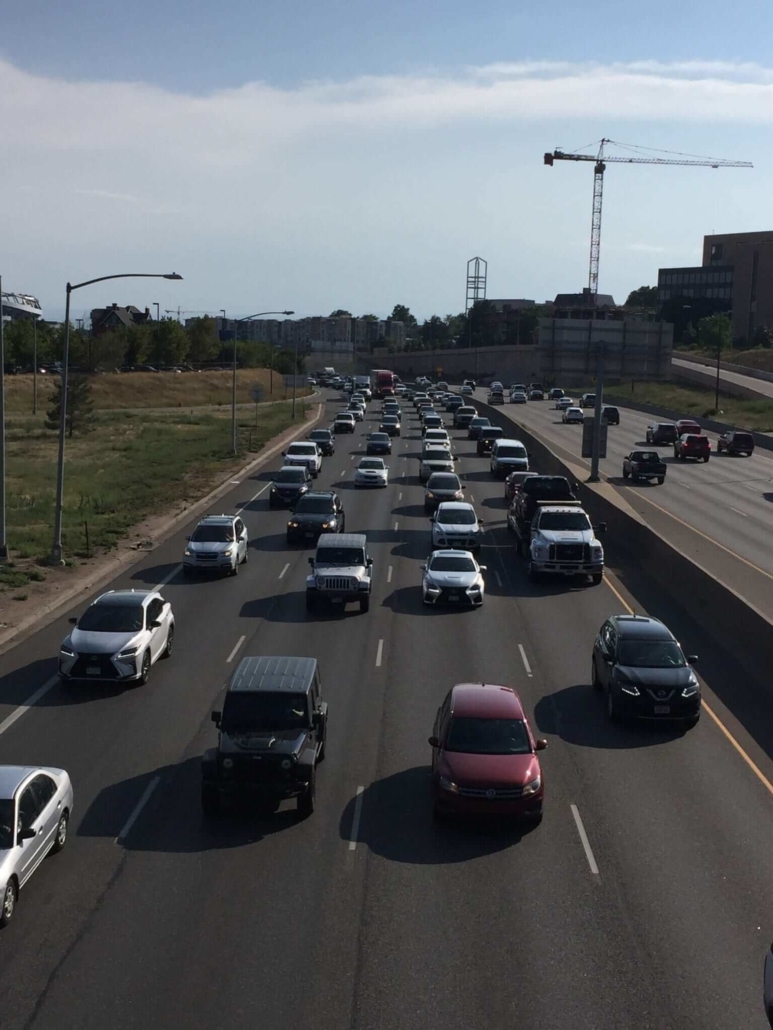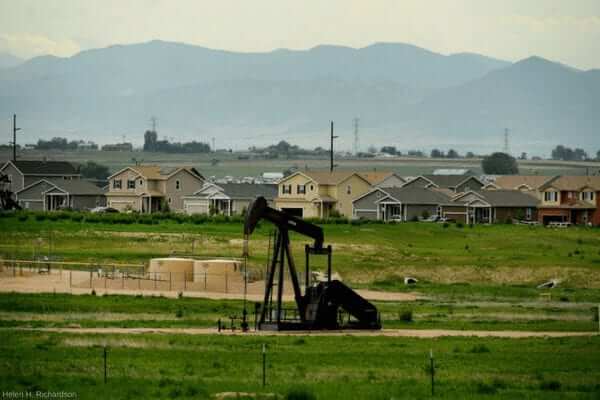DENVER — Today, Colorado’s Air Quality Control Commission (AQCC) voted unanimously to adopt the Low Emission Vehicle (LEV) Program standards for cars and trucks. Vehicle emissions are among the largest contributors to carbon pollution in Colorado and contribute to the smog and air toxins that threaten public health. The new LEV standards will reduce the greenhouse gas emissions from cars that threaten our health and economy, help Coloradans breathe easier, and help families save money at the pump.
Ahead of today’s vote, more than 7,600 Coloradans called on the AQCC to adopt state emission standards for gas-powered vehicles. Colorado now joins thirteen states and the District of Columbia in adopting the LEV standards.
In 2012, the federal government adopted a national standard that mirrors the LEV Program, with the support of car manufacturers and federal regulators. The Trump Administration, however, is working to roll back those standards.
In response to extensive support at public meetings, the AQCC has also started a stakeholder process to consider adoption of a Zero Emission Vehicle Program. The ZEV Program would set benchmarks for car manufacturers to introduce more electric vehicles into the Colorado market, resulting in even greater emissions reductions from the transportation sector.
Organizations supporting the LEV standards have released the following statements:
Emily Gedeon, Colorado Sierra Club’s Conservation Program Director:
“In the face of rollbacks to clean car standards by the Trump Administration, Coloradans spoke out for cleaner air, and the AQCC listened. Not only will the new standards protect us from excessive, toxic car and truck pollution, but they will save Coloradans money because their new cars and trucks will travel further with each gallon of gas. We look forward to continuing to engage Coloradans to speak out to the AQCC to get cleaner cars on the road in Colorado.”
Garrett Garner-Wells, Director of Environment Colorado:
“Throughout this process, Coloradans sent a clear message: the cars we drive shouldn’t hurt the people and places we love. We applaud the AQCC for listening to the thousands of voices from throughout our state who want cleaner air and climate action by voting to implement low emission vehicle standards.”
Danny Katz, CoPIRG Foundation Director:
“We shouldn’t have to choose between getting to where we need to go and polluting our air. Adopting a statewide emissions standard is the right decision because it will reduce tailpipe pollution. It also saves us at the pump as car companies take advantage of rapidly advancing fuel efficiency technology and produce cars that go further on a gallon of gas.”
Sophia Mayott-Guerrero, Conservation Colorado Energy and Transportation Advocate:
“Transportation is the biggest contributor to climate change in the U.S. With so many people moving to Colorado, we have more and more cars on the road, giving us dirtier air and accelerating climate change. Colorado took an important step to clean up tailpipe emissions, and now we need to get more electric vehicles on the road.”
Noah Long, Senior Attorney for the Natural Resources Defense Council:
“While the Trump administration is undermining public health, Colorado is stepping in to protect it by ensuring our cars are the cleanest in the nation. This will mean lower spending at the pump for drivers and cleaner air for our families and our future. The next step is just as important: The state must also move to spur sales of more electric vehicles.”
Michelle Robinson, Director of the Clean Vehicles Program at the Union of Concerned Scientists:
“Colorado’s decision is the right choice for drivers, for the climate, and for the future of transportation. By adopting this clean car program, Colorado will ensure that drivers will save hundreds of millions of dollars at the pump in the years to come, money that will be re-invested in the local economy. This decision will also cut oil use in Colorado, reducing the pollution that causes climate change. At a time when the federal government is rushing to dismantle clean car standards, in defiance of science and common sense, state leadership is more important than ever. With the addition of Colorado, a growing coalition of clean car states will continue to spur innovation in the auto industry and move us toward a cleaner future.”
Fred Krupp, President of Environmental Defense Fund:
“Clean cars for Coloradans is a mile high home run that means healthier air, a safer climate and cost savings. The new state clean car [ vehicle emission ] standards will protect Coloradans’ health and the state’s natural beauty, and will save people’s hard-earned money. The Trump administration has been undermining our most important health and environmental protections, but states like Colorado are stepping up with win-win solutions that will benefit everyone.”
Other organizations and public agencies to publicly support the increased LEV standards include Environmental Entrepreneurs, Ceres, Colorado Moms Know Best, the City of Aspen, the City of Fort Collins, the City of Longmont, Boulder County Public Health, the City and County of Denver, Eagle County Public Health, Jefferson County Public Health, Pueblo County, and the City of Lakewood Sustainability Division.

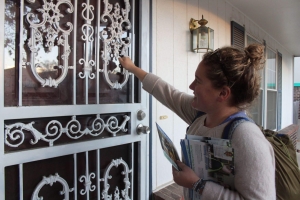 Spent $4.6 million on direct contributions to candidates, expansive digital ad programs, direct mail, canvasses, and TV and radio ads
Spent $4.6 million on direct contributions to candidates, expansive digital ad programs, direct mail, canvasses, and TV and radio ads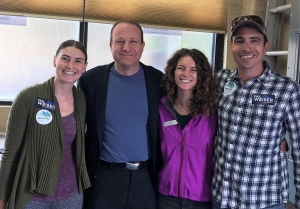
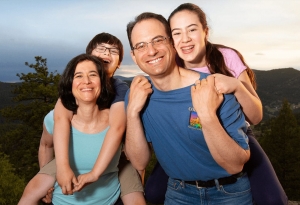
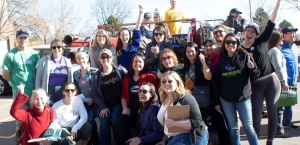 In state legislative races this year, we fought hard in key districts to uphold the pro-conservation majority in the state House and to take back the state Senate. This work paid off on election night when we saw victory after victory for pro-conservation candidates! In each of our toughest races, candidates who prioritized the protection of our clean air, clean water, and public lands won by more than 10 percentage points over their opponents. Such massive margins make it clear that Colorado voters value our conservation and vote with it in mind.
In state legislative races this year, we fought hard in key districts to uphold the pro-conservation majority in the state House and to take back the state Senate. This work paid off on election night when we saw victory after victory for pro-conservation candidates! In each of our toughest races, candidates who prioritized the protection of our clean air, clean water, and public lands won by more than 10 percentage points over their opponents. Such massive margins make it clear that Colorado voters value our conservation and vote with it in mind. In addition to our efforts to get pro-conservation leaders elected, we worked on several ballot measures — and had mixed results. We fought with all of our strength to defeat Amendment 74, one of the scariest measures we’ve seen on Colorado’s ballot in years. Even though the oil and gas industry spent more than $10 million to support 74, our side helped voters see through the deception and vote for local communities to have power over big industries. We’re grateful voters rejected this disaster!
In addition to our efforts to get pro-conservation leaders elected, we worked on several ballot measures — and had mixed results. We fought with all of our strength to defeat Amendment 74, one of the scariest measures we’ve seen on Colorado’s ballot in years. Even though the oil and gas industry spent more than $10 million to support 74, our side helped voters see through the deception and vote for local communities to have power over big industries. We’re grateful voters rejected this disaster!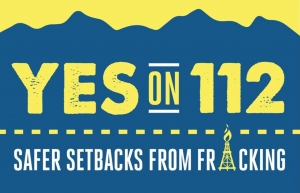 Unfortunately, Proposition 112 failed on the ballot. We endorsed this measure to increase the setback for new oil and gas development to 2,500 feet from buildings. We supported 112 because the health and safety of our communities should come above all else, but a $30 million campaign bankrolled by the oil and gas defeated this community-led initiative. Though 112 did not pass, more than 800,000 people voted for it because they’re fed up with the oil and gas industry. We need our legislators to listen to these voters and make sure Colorado has the strongest safeguards in the West for the oil and gas industry.
Unfortunately, Proposition 112 failed on the ballot. We endorsed this measure to increase the setback for new oil and gas development to 2,500 feet from buildings. We supported 112 because the health and safety of our communities should come above all else, but a $30 million campaign bankrolled by the oil and gas defeated this community-led initiative. Though 112 did not pass, more than 800,000 people voted for it because they’re fed up with the oil and gas industry. We need our legislators to listen to these voters and make sure Colorado has the strongest safeguards in the West for the oil and gas industry.
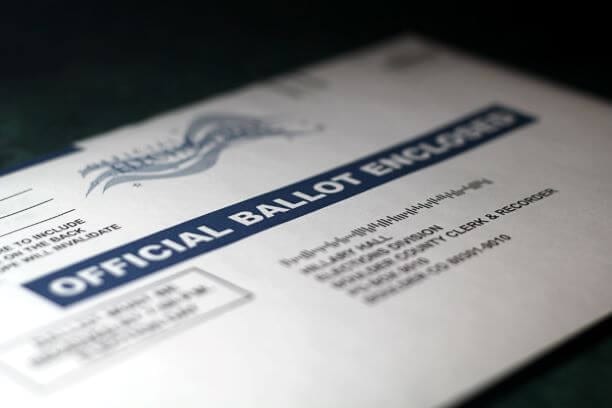
 YES on Amendment Y
YES on Amendment Y If Amendment 74 passes, it will allow any corporation or property owner to sue local governments over any law they disagree with, opening the floodgates to frivolous and costly lawsuits. Taxpayers would have to foot the bill.
If Amendment 74 passes, it will allow any corporation or property owner to sue local governments over any law they disagree with, opening the floodgates to frivolous and costly lawsuits. Taxpayers would have to foot the bill. ☒ NO on Proposition 109 – “Authorize Bonds for Transportation Projects”
☒ NO on Proposition 109 – “Authorize Bonds for Transportation Projects”